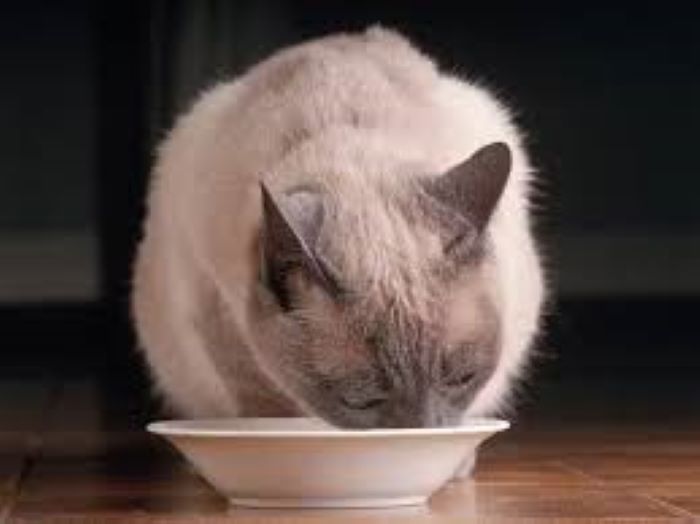If you come from a home with a cat, you will find out that your cat is fed on milk more than other foods. This is from the ready fixated idea that cats love milk. TV shows also have contributed to the idea that cats should drink milk.
Unfortunately, cats cannot talk. They would have told you that milk give them stomach upset and they drink milk because they are attracted by the fat in the milk.
Adult cats are lactose intolerant. They develop the intolerance once they stop breastfeeding. Besides, cow’s milk does not contain the nutrients required for your cats growth. You can however find a special type of milk made specifically for cats. This milk solution remove all the toxins that affects your cat. You can also feed your cat with water if you can’t access this solution.
All the other negative effects of feeding our cats with milk will be discussed in this guide. We will also give you the healthy alternatives
Kittens feed on their mother’s milk for the first 6-8 weeks of their lives. After 8-10 weeks, the cat is already fully transitioned g solid food. At this point, the cat loses its ability to digest milk. This is because adult cats have low level of enzyme Lactase that digest lactose which is the largest component of cow’s milk.
When you give your adult cat cow’s milk, it end up having a stomach upset and diarrhea. Under extreme conditions, your cat might develop obesity due to the high level of fat in the milk.
To avoid this, there is a special formulated milk for cats. This milk does not have the high level of fat and lactose. However, you still need to feed your cat with moderation. The manufactured milk can still cause stomach upset if you over feed your cat. You can add some water to the milk.
Although the manufactured cat’s milk is better than cow’s milk, there are instances where you should avoid feeding your cat any milk. For instance of your cat has some underlying health conditions. Common occasion of when you should not feed your cat milk is discussed below.
Milk does not affect the kidneys of a healthy cat. However, if a cat has certain kidney conditions, it is better to refrain from giving your cat milk. You can consult with your veterinary nutritionist to find out if your cat can feed on any form of milk.
There are some common kidney diseases where your vet will warn you against feeding your cat milk. This diseases include;
- Chronic kidney disease and
- Renal Disease
See also What does Calico Cat Patronous mean?
This two kidney diseases have almost the same dietary restrictions. Consult with a Vet to know what not to feed your cat if they have either of the two diseases.
The kidney is responsible for filtering waste from the body. If there is any issue with the cats kidney, it will have a hard time removing waste from the body. For this reason, ensure you take your cat to a vet to know if your cat has any issue. Some of the most common kidney diseases in cats are;
- Chronic Kidney Disease(CKD)
A cat with Chronic Kidney Disease cannot filter waste as expected. If your cat has CKD, your vet will advice you on the proper diet for your cat. Some of the foods that you will be warned against giving your cat is milk.
Phosphates which are mostly associated with proteins increases the progression of CKD. Since milk has high level of phosphate, avoid giving it to your cat at all cost.
Diets with high sodium and fat level are not suitable for cats with renal disease. Example of this foods are milk, cheese and all dairy products.
Yes. Milk has high level of calcium and fats. This might cause large deposit of mineral which might end up causing your cat to develop kidney stones and bladder stones.
Struvite crystal are some of the most common crystals found in cats. They are mostly found in cats that have urinary infections. The crystals may go for a long time without being detected. However, in extreme condition, your cat might start showing some symptoms such as loss of appetite, and pain when passing out urine.
The main cause of Struvite crystals is not known. However, it is associated with the presence of Feline Lower Urinary Track Disease (FLUTD). This disease is mainly associated with phosphate, magnesium, and Ammonium. And as we already know, milk has high level of phosphate. There it might play a huge part in giving your cat crystals.
Before designing a meal plan for your cat, ensure you consult with your veterinary nutritionist on what foods you should give your infected cat. Some of the dietary tips you might receive from your vet are;
- Don’t feed your cat milk. Adult cats have a hard time digesting lactose which is in high level in milk. Of your cat has kidney disease, feeding it milk will increase the progression of the disease. Check special type of milk for cats which has low level of fats, lactose, sodium, phosphate and Ammonium.
- Give your cat more water. Although cats are not natural water drinkers, create a routine where your cat will enjoy drinking water.
- Feed your cat special diets. There are some foods specifically formulated for cats with kidney diseases. Some of this foods include;
- Hill’s Prescription Diet Food
- Purina Pro Plan
- Royal Canin Veterinary Diet
See also Why Is My Cat Peeing on My Bed?
This are just a few dietary foods for cats with kidney disease. Consult with your Vet to find the best food for your cat.
Although people are acquitted to giving their cats milk, milk is very bad for adult cats. Adult cats from the age of 10 weeks have low level of lactase an enzyme that is responsible for digesting lactose found in milk. This make all cats lactose intolerant.
Before giving your cat any food, check with a vet nutritionist. A vet will advise you on the best foods to give your cat to prevent cats diseases such as renal disease and chronic kidney disease.

Maykon Alvarenga is a seasoned pet care expert with over 8 years of experience in the field. He holds a Master’s degree in Veterinary Science, specializing in small animal care. His passion for pets is reflected in his work on PetsBent.com, where he shares valuable insights on pet health, behavior, and training. Maykon is dedicated to helping pet owners provide the best care for their furry friends. Connect with him on Instagram at @maykon.alvarenga for more tips and updates.

